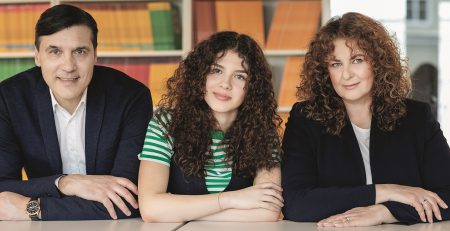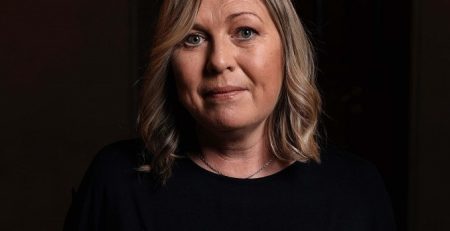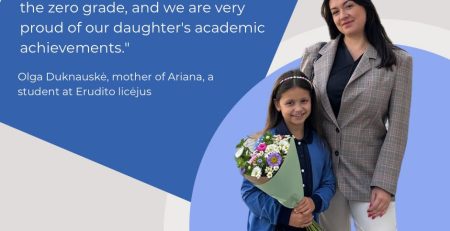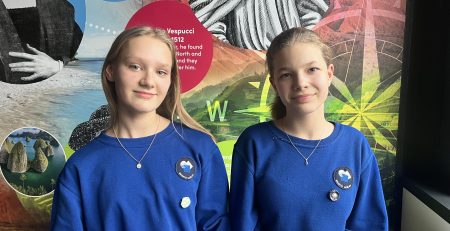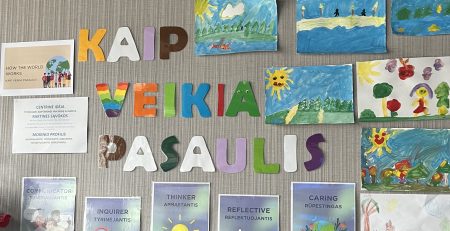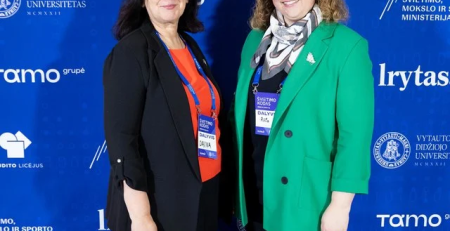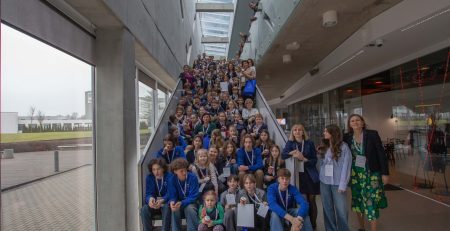MO Museum and Erudito Licėjus will continue the started partnership – will develop visual thinking
MO Museum and “Erudito” licėjus have agreed on a long-term partnership for 2023-2024. According to MO representatives, this is an important agreement that shows that art and museums are important in developing synergy between formal and non-formal education. The partnership will allow continuing the development of teachers’ competencies, developing interdisciplinary educations and sharing good practices of modern education, paying special attention to the development of students’ emotional literacy.
Education and art together
According to the head of the MO Museum Milda Ivanauskienė, research shows that children with better emotional and social competence are less likely to be bullied, are more likely to hold leadership positions as adults, are more satisfied with their interpersonal relationships, and tolerate stress better. Last year, the first scientific study in Lithuania, initiated by the MO Museum and conducted together with neuroscientists, substantiated the positive effect of art on students’ emotional literacy.
“Art can be an important part of emotional identity, and museums can become an excellent environment for developing emotional and social competences. We are happy that the partnership with “Erudito” licėjus, which has organically integrated into the activities of the MO Museum will continue to be able to create good practices of modern education together”, says Milda Ivanauskienė.
The founder and head of “Erudito” licėjus doc. Dr. Nerijus Pačėsa is glad that owning to the partnership, lyceum students will develop critical, analytical and visual thinking through art experience, and teachers will have the opportunity to develop and create.
“At the licėjus, we pay a lot of attention to the formation of effective thinking habits. Empathy, cooperation and the ability to think critically and creatively are among the most important modern competences for successful professional and personal activities. The partnership with the MO Museum provides new means for the experiential, integrated development of these abilities, so there were no doubts about its extension”, says the head of the “Erudito” licėjus dr. Nerijus Pačėsa.
A partnership that inspires teachers
The MO Museum is a space where teachers can meet, communicate and create joint activities. Last year, the community of teachers of “Erudito” licėjus in Kaunas and Vilnius were able to take advantage of these experiences and share their good practices of modern education. Together with MO educators, they created joint education for students, participated in experiential classes of emotion management and visual thinking – they developed their competences surrounded by works of art during the annual “Teacher’s Passport Conference” organized by the MO Museum.
Creating educations in the museum and testing them with students fundamentally changes teachers’ attitudes. Incorporating works of art into the physics lesson enriched the educational content and provided new tools to explain complex questions. It is also the possibility to get to know theirselves and their students in a different way which raised the educational process to another level of quality.
Attention to the teachers of the partner and of Lithuania
This year, the MO Museum and “Erudito” licėjus plans include the continuous creation of joint educations, the development of teachers’ competencies, and emotional literacy education for the students of “Erudito” licėjus.
The MO Museum also shares educational practices with all Lithuanian teachers and the educational community at the annual “Teacher’s Passport Conference” held once a year.
“Teacher’s Passport” is an individual and free membership that gives you the opportunity to visit MO exhibitions for free and receive relevant information about MO training, conferences for teachers or other cultural education activities. There are currently more than 3,000 teachers in the “Teacher’s Passport” community created by the MO Museum.




